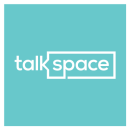What does it mean to operate like a startup? For many companies, it means wearing tons of hats and catering to the evolving needs of customers, employees and their industry. But as companies grow, maintaining this flexibility becomes more of a challenge.
We caught up with three local companies that, despite experiencing major growth, have managed to stay true to their roots. They walked us through their unique experiences with scaling.

Rent the Runway has become a household name, but that doesn’t stop the team from operating like a startup. CTO Joshua Builder described one of the company’s values that encourages this mindset even further.
In your view, what are the benefits of working for a company that's more established but still has the spirit of a startup?
At Rent the Runway’s current stage, we have come to the point in our business where we are proving how big something can be as opposed to whether or not it will survive. Therefore, we have a physical and emotional freedom that allows us to think big while still being strategic and analyzing the past for areas of opportunity and growth.
...everyone is a founder of Rent the Runway.”
Which elements of startup culture have remained valuable as the business has grown, and why?
One of our core values is that everyone is a founder of Rent the Runway. We have built a culture where everybody can have an outsized impact regardless of role, title or expertise. Across the board, if there’s a project that you want to work on, you are given the freedom to explore. Some of our most innovative work at our company has resulted from this spirit and from teams and people who aren’t afraid to step outside of their comfort zone.
For enterprise software company Celonis, staying grounded means focusing on maintaining internal culture and hiring the right people. Senior Marketing Manager Ethan Stine explains how employees are at the core of their startup nature.
In your view, what are the benefits of working for a company that's more established but still has the spirit of a startup?
Considering a career move means evaluating risks versus rewards. Working for startups can be fun and exciting because you’re pioneering in uncharted territory, but it also comes with an inherent set of uncertainties. You have to ask yourself questions like, ‘Is the business model proven? Does the technology work? Is the company financially stable?’ The advantage of working for a company like Celonis, which has transitioned from startup to an established market leader, is that we’re in a sweet spot to enjoy the best of both worlds. Our business model is proven, our customers love our technology, and the company is financially quite healthy, but we’re still pioneering, and we’ve retained a lot of the spirit and energy of a startup.
Ownership, ambition and willingness to learn are cultural values that keep things exciting.”
Which elements of startup culture have remained valuable as the business has grown, and why?
People who gravitate to startups tend to be explorers and creators with an appetite for excitement and a sense of intellectual curiosity. To succeed in a startup environment, you need to be self-motivated, flexible and accountable for your work from end to end — and those are the sort of people we recruit for. Those three traits stay valuable as the business grows because even after you hit big milestones (like becoming a unicorn) the pace of growth means you can never really rest on your laurels. Ownership, ambition and willingness to learn are cultural values that keep things exciting even when you’ve grown beyond what most people would consider a startup.

Online therapy company Talkspace has seen massive growth and success since launching in 2012. By focusing on their mission, the company is able to maintain its startup roots. Software Engineer Roberto Martin Munoz explained more.
In your view, what are the benefits of working for a company that's more established but still has the spirit of a startup?
I think the most important benefit is that your work makes a meaningful difference. At a small- to mid-sized startup, there's the opportunity to envision something and bring it into the world. You’re not just a cog working on a tiny piece of a massive project, but have more ownership and feel like you truly helped to usher it into the world. But we also have more resources at this point — we can build even more of our ideas and things that our clients request.
The chaos of startup days are over, the processes established help to lower the overall stress and increase quality and productivity. Because we have more resources and a greater headcount the roles are a little bit more defined and specialized. We’re less a company of generalists. Now we’re able to source employees who have deep experience in exactly the role we need them for.
We value having a diverse team and being a team player...”
Which elements of startup culture have remained valuable as the business has grown, and why?
Hiring the right people is not easy. As a business grows, the pressure to have a bigger team coupled with a better budget may lead to an overly quick personnel expansion that compromises the quality of the team. In our startup days, we had a strong sense that the cohesion and chemistry of our team was one of the most important things to preserve. As Talkspace grew, we created hiring processes with that ethos in mind. The present day result is a hiring pipeline that does not forgo quality and cohesion. We value having a diverse team and being a team player. Those components are vital no matter how big we get. You have to hire kind people!
And even though every department in Talkspace has significantly grown, we are on the same mission and we keep assisting each other the same way we did when we were only a few people. Because ultimately, other departments’ success is our success.







